‘Interview With the Vampire’ Explores the Hell of Immortality [Fatal Femmes]

Vampires are known as creatures of monstrous seduction. Operating almost exclusively at night, these humanoid beings hunt by glamouring their intended prey and striking with a pleasurably painful bite that could be mistaken for a kiss. Though feral vampires exist, classic examples of this monstrous foe are gentile noblemen who lurk in dusty castles and beckon beautiful women to moonlit gardens from the windows of a bedroom terrace. More modern examples include the goth bloodsuckers of Joel Schumacher’s The Lost Boys or Chris Sarandon’s devastatingly handsome Jerry in Fright Night. The archetype has further evolved to include sexy bad boys and heartthrobs in The Sookie Stackhouse Novels and the Twilight series, not to mention their addictive adaptations. But alongside the proliferation of these bloodsucking boyfriends is a rare breed of non-sexual killer: the vampire child.
These immortal youngsters are uniquely terrifying in their wide-eyed malevolence, a damnable juxtaposition of innocence and evil. Tobe Hooper’s iconic Salem’s Lot—adapted from the novel by Stephen King—pictures a vampiric child hovering outside the window, while Tomas Alfredson’s Let the Right One In—itself adapted from John Ajvide Lindqvist’s disturbing story—dissects the devastating isolation of nomadic eternity. But no story explores the cruel irony of a vampiric child like Interview With the Vampire. Based on the novel by Anne Rice, Neil Jordan’s 1994 film hinges on a little girl named Claudia (Kirsten Dunst) who receives the gift of immortality at just six years old.
Her Story
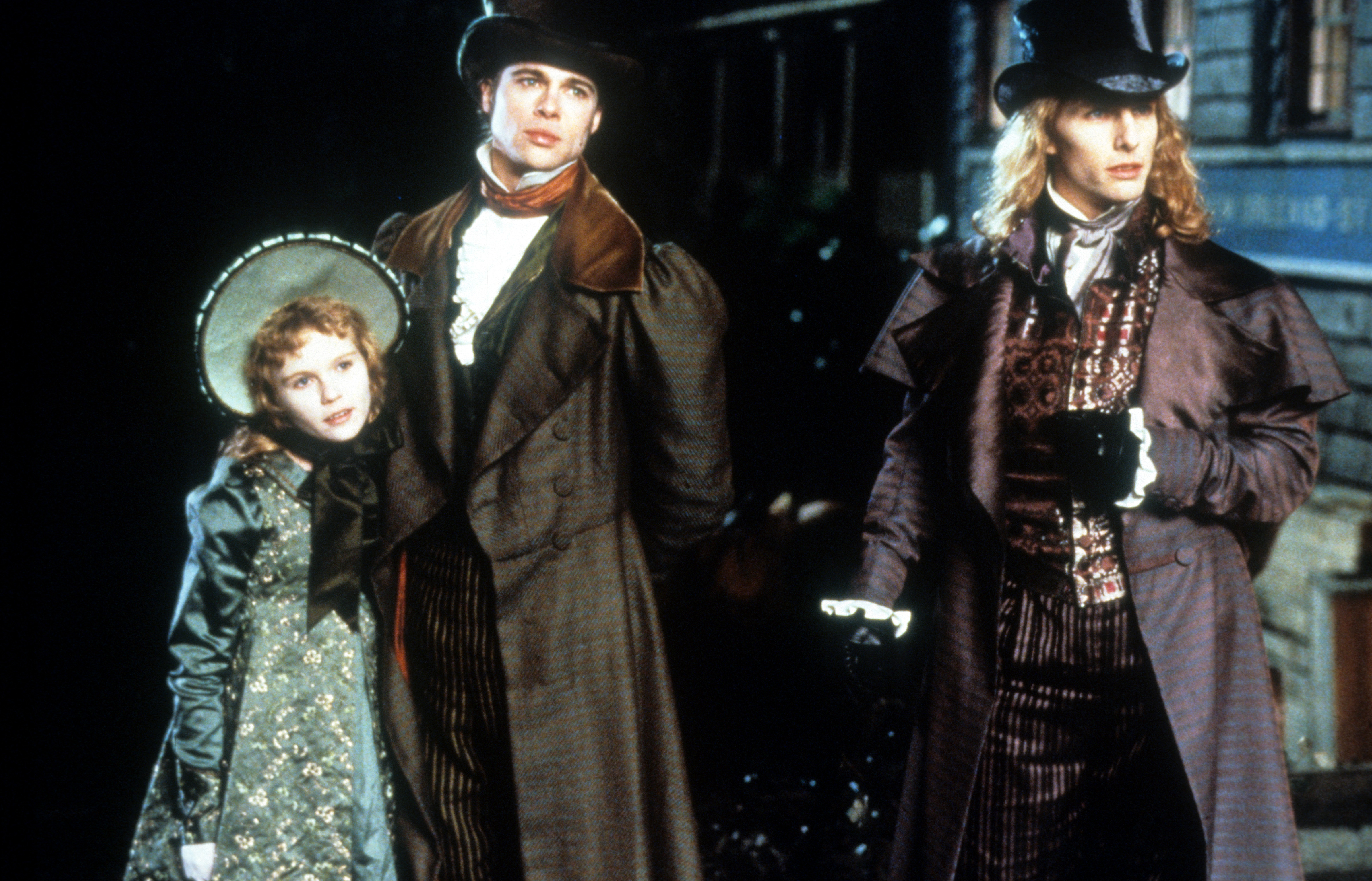
In Interview With the Vampire, Claudia first meets her vampiric father Louis (Brad Pitt) in the midst of an existential crisis. Made undead by the unscrupulous Lestat (Tom Cruise), he can’t bring himself to drink human blood and has been making do with rats and chickens. While wandering through a plague-ridden section of New Orleans, Louis stumbles upon a young girl clinging to the corpse of her mother. He comforts the child, but can’t resist biting into the tender flesh of her neck.
The conscientious vampire is horrified by his lack of restraint—as well as the exhilaration that comes from taking her life—and flees into the night. Having followed his companion to the shack, Lestat takes the dying girl back to their home and transforms her into a binding tool to keep Louis by his side. With young Claudia now in need of care, he will force them to create a happy family out of darkness.
Claudia quickly adapts to drinking blood. Just moments after her mortal death, the cherubic blond reaches for Lestat’s bleeding wrist and gently whispers, “I want some more.” Still a child, this newborn vampire has none of Louis’ reservations about feeding on humans and rapidly becomes a skilled hunter. Lestat teaches her the finer points of murder while providing a proper education befitting a daughter of high society. For 30 years they hunt in the bustling city as a loving, if lethal, non-traditional family.
But this domestic bliss is broken when Claudia discovers a horrifying truth: she will never grow up. Now mentally a young adult, the ostensible child rages at her vampiric fathers for authoring this cruel fate. As her anger subsides, Claudia forgives the gentle and compassionate Louis, but focuses her hatred on Lestat. She devises a plan to kill her ruthless maker in cold blood, unaware that destroying another vampire is the only unforgivable sin in the undead world.
Having rid themselves of the tyrannical Lestat, Louis and Claudia flee to Europe where they stumble upon a clan of theatrical vampires living under the streets of Paris. At first welcoming, the group’s second in command senses Louis’ betrayal of his maker and devises a hellish retribution. The screaming thespians drag Claudia and her newly made companion Madeleine (Domiziana Giordano) into a dry well, forcing them to wait under the stars for the deadly sun to rise. When night falls again, all that’s left for Louis to mourn are the delicately preserved ashes of his beloved little girl.
Her Weapons
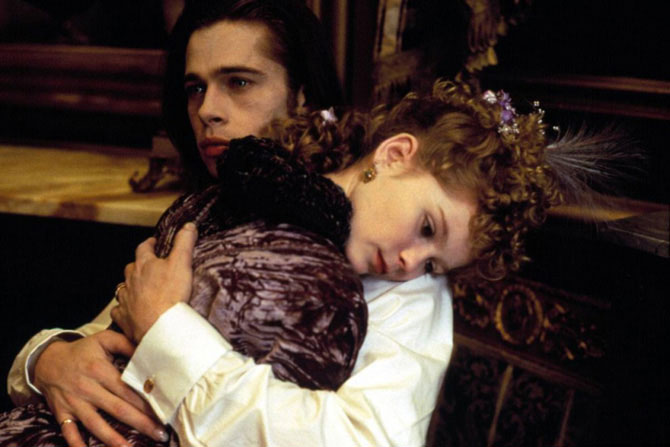
Though physically small, Claudia becomes an expert in feigning innocence to disarm her prey while exploiting their charity and parental concern. We watch as she sits on a bench at night waiting to be rescued by an unsuspecting stranger. The little girl’s sharp fangs emerge as a kindly woman holds her close and promises to help her find her mother. All the while, Lestat looks on from the shadows, obviously proud of his pupil. With a child’s impatience, Claudia becomes a great danger to those who would deny her. She kills her piano teacher during a lesson and exsanguinates the seamstress who’s mending her dress. Louis notes that the tiny assassin eventually begins to play with her food, drawing out each kill and savoring the act of taking human life. A vicious predator, she has become a perfect reflection of Lestat’s murderous amorality.
Despite years of honing her deadly skill, Claudia is hindered by her size and stature. She must rely on her sinister tricks and cannot overpower anyone larger than herself. With the outward appearance of a female child, she’s also unable to navigate the world without a protector. Armand (Antonio Banderas) explains that because of this impracticality, creating a vampire so young is strictly forbidden.
In Paris, Claudia begins to fear that Louis will leave her for his seasoned new friend and seeks out a woman to serve as her mother. Madeleine offers her neck to Claudia, but the immortal little girl is not strong enough to create a vampire on her own. She begs Louis to complete the transformation though he finds the act abhorrent. He later tells his daughter that fulfilling her understandable request has also killed the last bit of his humanity. The reluctant vampire has finally paid for stealing human life from the child he adores.
Her Motive
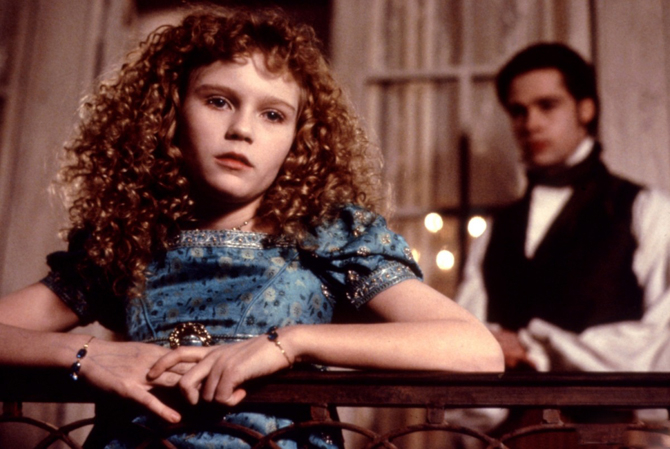
It’s a logistical concern that prevents vampires from turning children. However, Claudia soon discovers another hellish reality of undead life. While strolling along the docks with her fathers, the child spies a woman bathing in the window and gazes in awe at her feminine curves. Lestat believes she’s spotted their next meal, but Claudia corrects him. She doesn’t want to kill the woman, she wants to be her. Lestat and Louis exchange a grave look, knowing the moment they’ve been dreading has finally arrived. Claudia realizes that she’ll never grow up.
She longs to experience an adult woman’s body and grieves a full life that will never exist. Later, Lestat tries to cheer up his progeny with a new doll, but Claudia tosses the toy aside, revealing the woman’s corpse hidden in her room. She rages through the house, berating her fathers for the hell they have visited upon her, and cuts off her impeccable blond ringlets as an act of defiance. However, the little girl screams in horror when her hair grows back a moment later. She’s discovered that no matter what she does, she will be trapped in the body of a child for all eternity.
Desperate for justice—or perhaps revenge—Claudia vows to punish Lestat for what he has done. Feigning atonement for her tantrum, she offers her callous father a reconciliatory gift: two young boys on which to feast. She claims they are drunk on brandy wine, but she’s actually given them Laudanum, a drug that kills the children, but keeps their blood warm. Lestat immediately grows sick after drinking the blood of the dead, coughing and sputtering on the floor, as Claudia slits his throat from behind.
Yet even in this moment of triumph, she has the temperament of a child. She asks Louis to lift her up so that Lestat’s rapidly spreading blood doesn’t stain her pink satin shoes then begs him to help her dispose of the body. Louis complies out of love for his cherished daughter. He too has longed to be rid of Lestat, but believed escaping the maniacal narcissist to be impossible. It’s Claudia who has finally severed these family ties though the rash decision will lead to her death.
Her Victims
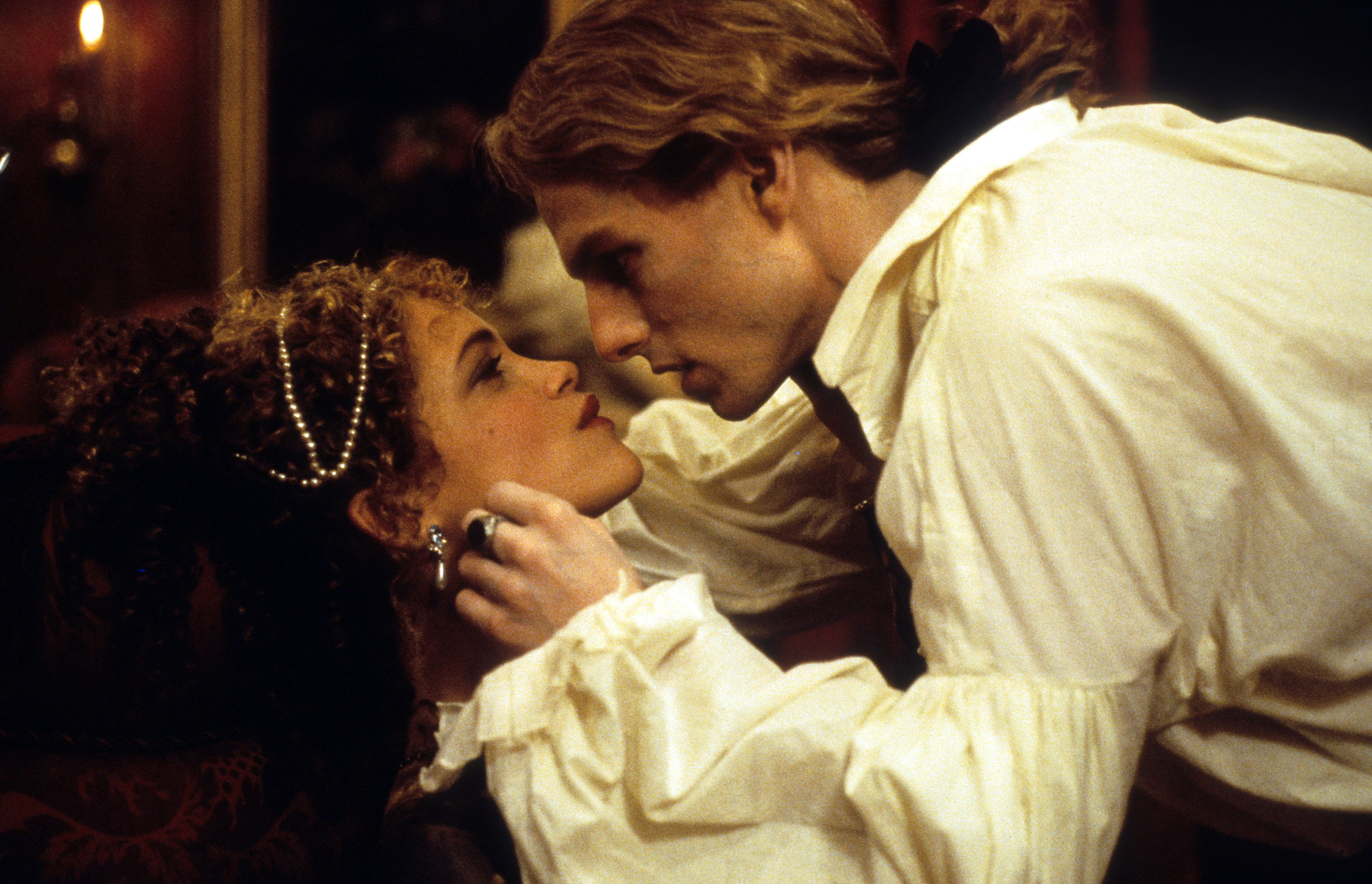
Upon discovering the hellish fate that lies ahead, Claudia turns her attention to the past. She follows Louis to the now abandoned shack and the proof of a life she cannot remember. Though she was days away from succumbing to the plague when Louis arrived, the frustrated child nonetheless blames her fathers for setting in motion her mortal death. However, the girl’s love for Louis proves too strong to break and she concentrates the full force of her rage upon Lestat. And perhaps her seething anger has merit. Lestat has admittedly used an innocent child to keep Louis by his side. Recounting her dark birth, Louis wonders if Lestat may have created the young vampire out of an unspoken longing for companionship and connection. But whatever the reason, to Claudia, the results are the same: the greedy Lothario has used her as a tool to appease his restless spirit.
When making Louis a vampire, Lestat offers the depressed young man a choice between death and eternity. We see him present this same option to Malloy (Christian Slater), the man who conducts Louis’ titular interview. However, he offers no such choice to Claudia. While it’s likely that the dying child would choose vampirism to imminent death, it’s notable that she is the only one transformed without consent. The fact that Lestat grows to love the charming little girl doesn’t change the fact that he victimizes her for his own pleasure, dressing her up as a living doll and parading her around to dazzle the city’s wealthy elite. He has robbed Claudia of her agency and bodily autonomy. Is it any surprise that she seeks to visit this same cruelty onto him?
Her Legacy
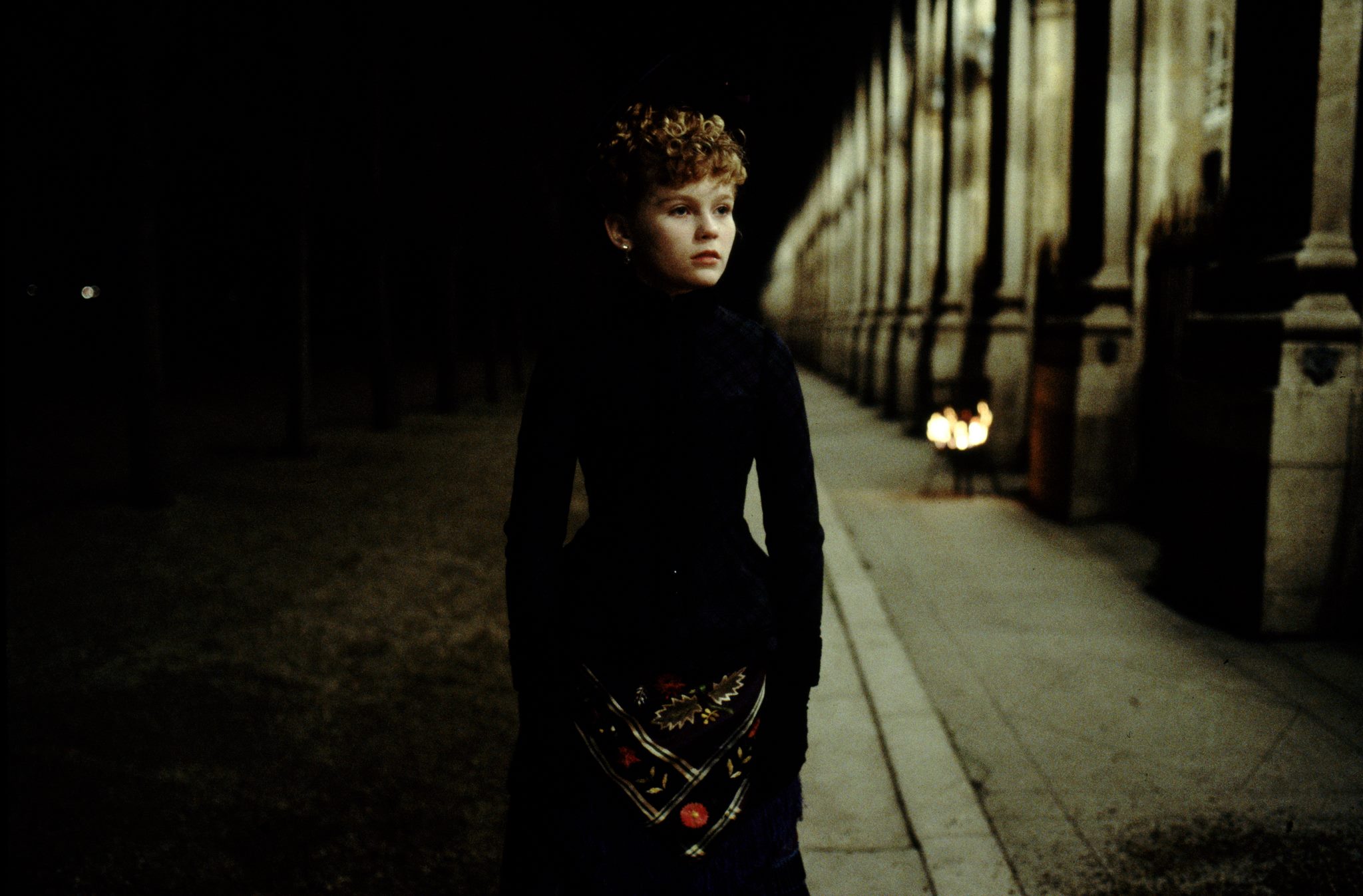
Though Claudia’s story is wholly tragic, the inspiration for her character is truly heartbreaking. In 1970, Rice’s daughter Michele passed away from leukemia at six years old, the same age at which Claudia suffers a mortal death in Interview With the Vampire. Michele’s influence can be seen in the creation of a little girl frozen in time as well as the woman she chooses to be her companion. Madeleine has offered up her humanity to stay with Claudia who happens to resemble her own deceased daughter, longing for “a child who cannot die.” Both characters can be seen as Rice’s attempt to process unimaginable grief while mourning her own daughter’s chance to grow old. The character now stands as a memorial to a life that might have been as well as a cautionary tale against clinging to the past.
The true horror of Interview With the Vampire lies in the fact that regardless of her fathers’ complicated actions, Claudia was never meant to grow up. Given the squalor in which Louis finds his surrogate daughter, it’s tempting to view Lestat’s “dark gift” of immortality as a kind of blessing. She mentally matures as the years go by, living a full and exciting life though trapped in an unchanging body. But Armand alludes to her story’s cruel paradox when he tells Louis, “The world changes, we do not, there lies the irony that finally kills us.” Her unnaturally extended life only serves to illustrate the looming pain of death deferred and sorrow that can only be held off for so long.
As a widower himself, perhaps Louis is also using the girl to replace the infant he lost with his pregnant wife’s passing. When Claudia comes into his life, Louis’ interview transitions from a chronicle of vampiric adventure to an exploration of grief and the struggle to reconcile bitter regret. Louis must mourn his lost humanity and accept the terrible reality of his new existence while learning to find connection in the midst of his pain. When offered the chance to release the torment of his guilt, he rejects Armand’s tutelage, choosing instead to embrace the excruciating memories of time with his daughter.
Decades later, he spares a vampire’s precious tears when recounting Claudia’s story to Malloy, remembering how the little girl changed his life. Through tremendous loss, he’s learned that souls will inevitably pass in and out of our lives, sparking both joy and devastation through the years. It’s only in remembering the people we love that we’re truly able to make them immortal.
Categorized: Editorials Fatal Femmes
